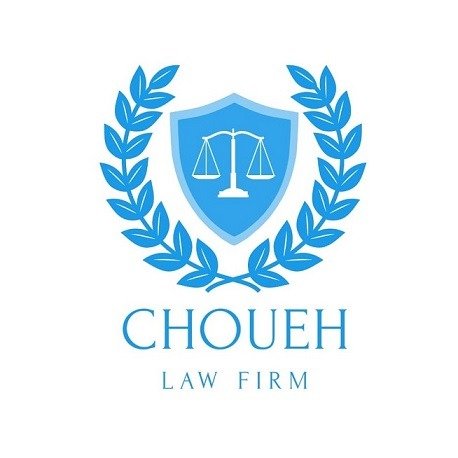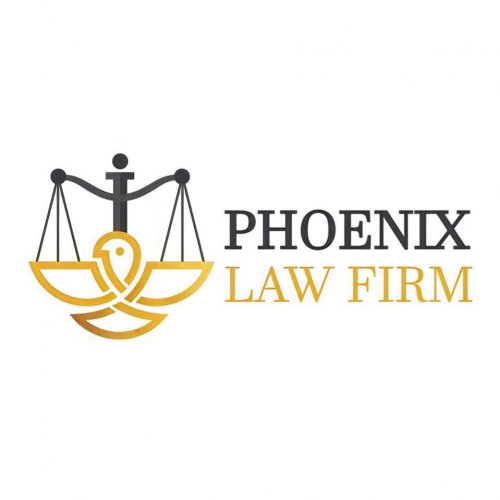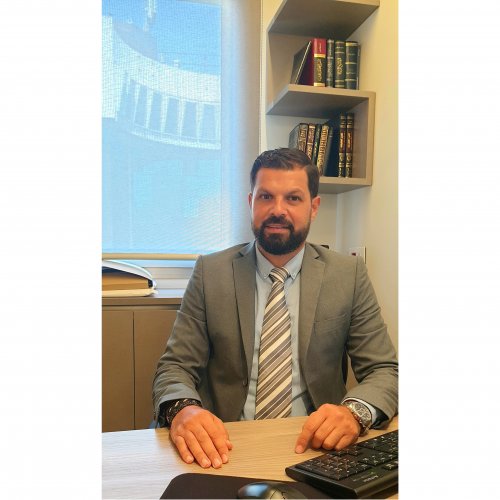Best Project Finance Lawyers in Lebanon
Share your needs with us, get contacted by law firms.
Free. Takes 2 min.
Or refine your search by selecting a city:
List of the best lawyers in Lebanon
About Project Finance Law in Lebanon
Project finance in Lebanon refers to the legal and financial arrangements used to fund large-scale infrastructure or industrial projects, such as power plants, roads, ports, and telecommunications networks. This method of financing relies on the projected cash flows of the project rather than the balance sheets of the project sponsors, meaning that lenders are repaid from the revenue generated by the project itself. The legal framework for project finance in Lebanon involves a blend of local commercial laws, banking regulations, and contractual agreements aimed at mitigating risks for all parties involved.
Why You May Need a Lawyer
Legal counsel is essential when dealing with project finance in Lebanon due to the complexity and scale of most projects. You may require a lawyer if you are:
- Structuring a new investment or joint venture for an infrastructure project
- Negotiating or drafting project agreements such as Engineering, Procurement, and Construction (EPC) contracts, Power Purchase Agreements (PPAs), or concession agreements
- Seeking to secure project funding from banks, international lenders, or multilateral agencies
- Handling land acquisition, permits, or government approvals for your project
- Dealing with regulatory compliance in banking, environmental protection, or public procurement law
- Resolving disputes with contractors, public authorities, or lenders
- Transferring or restructuring existing project assets or debts
A lawyer can help you anticipate legal issues, negotiate better terms, and achieve regulatory compliance.
Local Laws Overview
In Lebanon, several bodies of law impact project finance. Key aspects include the Commercial Law, the Central Bank of Lebanon (Banque du Liban) regulations on lending and guarantees, and various sector-specific laws governing energy, transport, water, and telecommunications. Important points to note:
- Project finance vehicles are usually structured as Lebanese joint stock companies (SAL) or limited liability companies (SARL), as these entities can hold assets and contracts
- Foreign ownership is permitted but may be subject to specific sector restrictions or requirements under the Investment Law
- Security interests, mortgage, and pledge registration must follow procedures under the Lebanese Code of Commerce and the Civil Code
- Government guarantees for projects are rare, so lenders often require strong collateral and risk mitigation mechanisms
- The legal system is based primarily on civil law influences, so pre-agreed contracts and written agreements are critical
- Public-private partnerships (PPPs) and Build-Operate-Transfer (BOT) projects have their own legal frameworks, overseen by relevant ministries
- Environmental impact assessments and local municipality approvals are mandatory for many infrastructure projects
Frequently Asked Questions
What is project finance and how does it work in Lebanon?
Project finance is a way to fund major infrastructure or development projects using the projected cash flows of that specific project. In Lebanon, this usually involves forming a separate company for the project, and the financing is repaid mainly from the project’s revenues rather than the sponsors’ assets.
What types of projects typically use project finance in Lebanon?
Common projects include power generation plants, renewable energy installations, water and waste management facilities, highways, ports, and large real estate developments.
Can foreign investors participate in project finance deals in Lebanon?
Yes, foreign investors are allowed to participate, but some sectors have specific ownership and investment restrictions or requirements. Legal advice is recommended to navigate the local regulations.
What kind of collateral can be offered in Lebanese project finance?
Collateral may include project assets, receivables, bank accounts, and contracts. Mortgages and pledges must be registered under Lebanese law to be enforceable.
Are there any government guarantees for project finance loans in Lebanon?
Government guarantees are rare in Lebanon. Most projects are financed based on their own merits and cash flows, although certain strategic sectors may have more government involvement.
What legal structures are commonly used for project companies in Lebanon?
Most project companies are set up as joint stock companies (SAL) or limited liability companies (SARL), depending on the project size, ownership structure, and regulatory requirements.
How are disputes in project finance commonly resolved in Lebanon?
Disputes can be resolved through Lebanese courts or by arbitration. Many contracts specify international arbitration (such as ICC arbitration) to ensure neutrality for foreign investors and lenders.
What regulatory approvals are typically required for project finance?
Approvals vary by sector. Commonly required are permits from ministries, environmental agencies, municipalities, and, for foreign investors, from the Investment Development Authority of Lebanon (IDAL).
What role do international lenders play in Lebanese project finance?
International lenders often participate in large projects, providing loans or guarantees. Their involvement usually brings additional due diligence, documentation standards, and may require use of international law or arbitration provisions.
What is a public-private partnership (PPP) in Lebanon?
A PPP is a legal and financial arrangement where the public sector works with private companies to finance, build, and operate infrastructure projects. Lebanon has adopted specific laws and regulations for PPPs, administered mainly by the Higher Council for Privatization and PPPs.
Additional Resources
If you are seeking more information on project finance in Lebanon, you may find the following resources useful:
- Ministry of Finance
- Investment Development Authority of Lebanon (IDAL)
- Banque du Liban (Central Bank of Lebanon)
- Higher Council for Privatization and PPPs
- Ministry of Energy and Water
- Lebanese Order of Engineers and Architects (for technical project requirements)
- Lebanese Bar Association for a directory of qualified legal professionals
Next Steps
If you are considering starting or participating in a project finance transaction in Lebanon, follow these steps:
- Clearly identify the scope and objectives of your project
- Gather all relevant documents such as feasibility studies, financial models, and technical plans
- Consult with a local lawyer who specializes in project finance to understand your legal options and obligations
- Engage with relevant governmental bodies to ensure compliance and obtain necessary permits
- Negotiate and draft all necessary contracts with legal guidance to satisfy both local and international requirements
- Consider dispute resolution provisions in advance to protect your interests
Having professional legal advice at every stage can help avoid costly mistakes, streamline approvals, and safeguard your investment. Do not hesitate to seek support from legal, financial, and technical experts who are familiar with the Lebanese project finance landscape.
Lawzana helps you find the best lawyers and law firms in Lebanon through a curated and pre-screened list of qualified legal professionals. Our platform offers rankings and detailed profiles of attorneys and law firms, allowing you to compare based on practice areas, including Project Finance, experience, and client feedback.
Each profile includes a description of the firm's areas of practice, client reviews, team members and partners, year of establishment, spoken languages, office locations, contact information, social media presence, and any published articles or resources. Most firms on our platform speak English and are experienced in both local and international legal matters.
Get a quote from top-rated law firms in Lebanon — quickly, securely, and without unnecessary hassle.
Disclaimer:
The information provided on this page is for general informational purposes only and does not constitute legal advice. While we strive to ensure the accuracy and relevance of the content, legal information may change over time, and interpretations of the law can vary. You should always consult with a qualified legal professional for advice specific to your situation.
We disclaim all liability for actions taken or not taken based on the content of this page. If you believe any information is incorrect or outdated, please contact us, and we will review and update it where appropriate.
Browse project finance law firms by city in Lebanon
Refine your search by selecting a city.










